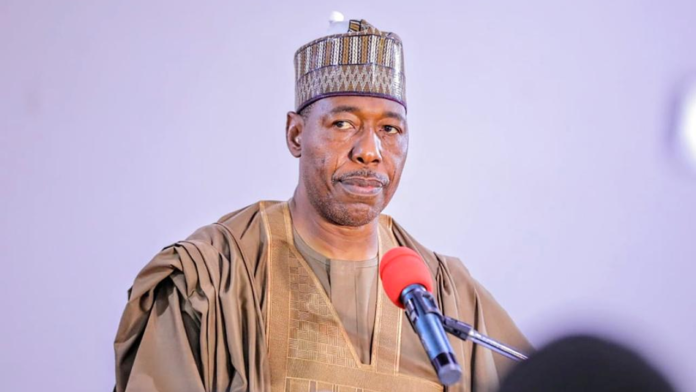The Borno State governor, Babagana Zulum has announced that from December 1, 2024, medical doctors in state-owned hospitals will receive the same salary as their counterparts in federal institutions.
Mr Zulum while speaking on Thursday, November 21, 2024, at the 65th National Council on Health (NCH) Conference in Maiduguri said the
policy shift aimed to retain qualified medical professionals within Borno’s healthcare system and ensure better service delivery to residents.
The event had the theme: “Accelerating Pathways to Universal Health Coverage: Strategies for 2030 Success”.
He expressed concern at the growing brain drain among doctors in the state’s medical institutions due to a disparity between their salaries and those of their federal counterparts.
He said that the state government had already allocated N301 million to support 100 medical doctors currently undergoing residency training in the state’s health institutions.
“This is a matter of great concern for all of us. I believe that the new salary structure and allowances will encourage our doctors to stay and work within Borno State,” the governor said.
Mr Zulum also highlighted Borno’s other efforts to strengthen its health sector.
He reiterated the state’s commitment to the goals outlined in the Abuja Declaration.
The least 15 percent of their annual budgets to health.
Mr Zulum said that Borno had already made substantial strides in that regard, prioritising investments in maternal and child healthcare, health infrastructure and disease control programmes.
He, however, acknowledged the continued challenge of the high maternal mortality rate in the state, saying that it required urgent action.
He expressed support for the Federal Government’s Maternal Mortality Reduction Initiative, which aims to eliminate financial barriers to life-saving procedures, including cesarean sections.
He said that the initiative aligned with Borno’s commitment to improving maternal health, particularly in hard-to-reach areas.
He also called for the establishment of a federal medical centre in Borno to complement existing healthcare facilities and further enhance service delivery.
He thanked the Federal Ministry of Health for continued support, praising it for proactive efforts particularly, in response to recent floods that affected the state.
Zulum emphasised the importance of collaboration between federal and state health agencies as well as the involvement of local leaders in improving healthcare outcomes.
He also stressed the need for a community-driven approach to healthcare, urging better coordination of humanitarian aid to ensure that healthcare interventions would be well-targeted and more effective.
“As we continue to strengthen our health systems, we must ensure that every community has access to quality healthcare.
“This will require collaboration, coordination and the collective efforts of all stakeholders,” he said.



